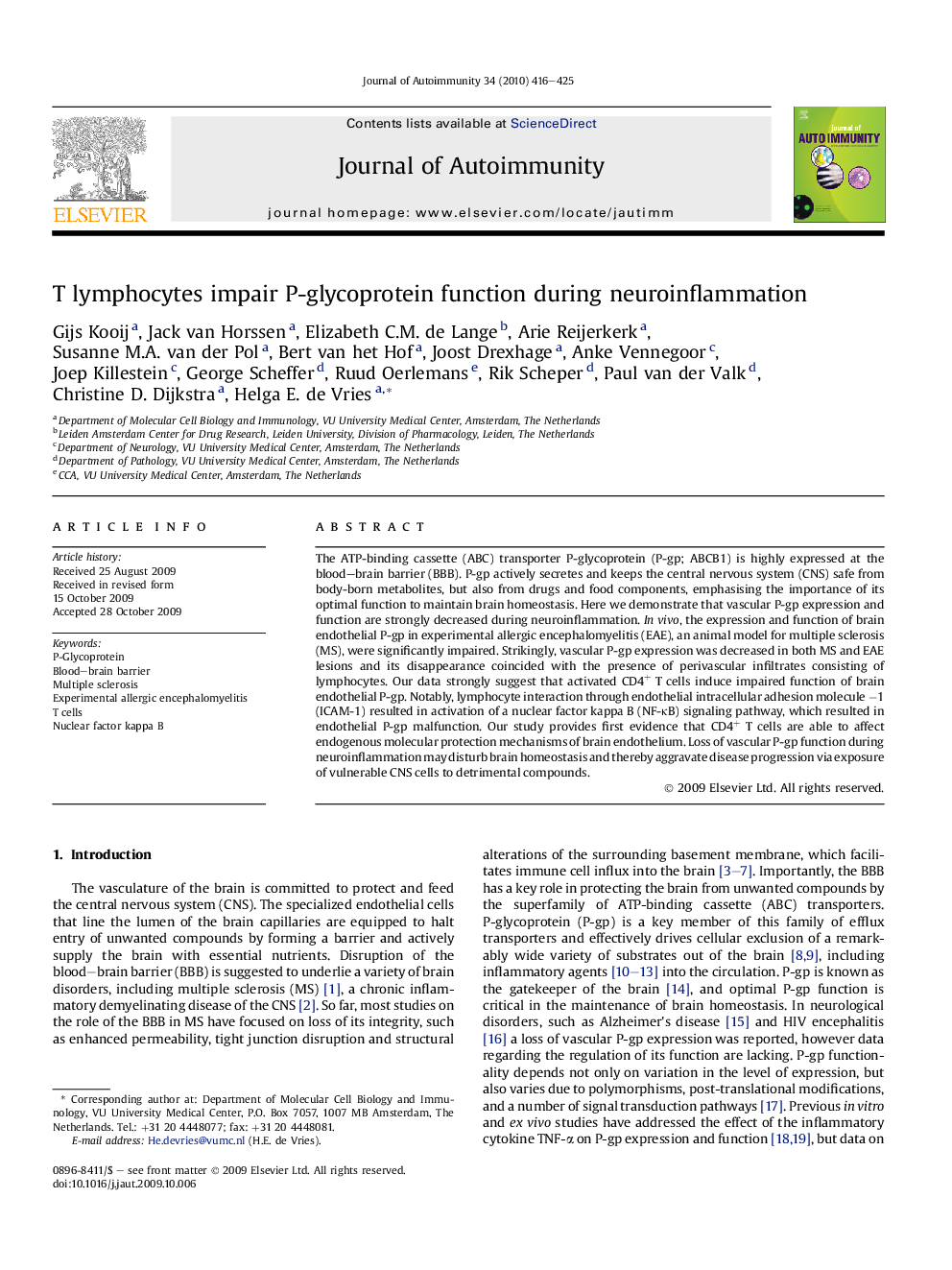| Article ID | Journal | Published Year | Pages | File Type |
|---|---|---|---|---|
| 3368307 | Journal of Autoimmunity | 2010 | 10 Pages |
The ATP-binding cassette (ABC) transporter P-glycoprotein (P-gp; ABCB1) is highly expressed at the blood–brain barrier (BBB). P-gp actively secretes and keeps the central nervous system (CNS) safe from body-born metabolites, but also from drugs and food components, emphasising the importance of its optimal function to maintain brain homeostasis. Here we demonstrate that vascular P-gp expression and function are strongly decreased during neuroinflammation. In vivo, the expression and function of brain endothelial P-gp in experimental allergic encephalomyelitis (EAE), an animal model for multiple sclerosis (MS), were significantly impaired. Strikingly, vascular P-gp expression was decreased in both MS and EAE lesions and its disappearance coincided with the presence of perivascular infiltrates consisting of lymphocytes. Our data strongly suggest that activated CD4+ T cells induce impaired function of brain endothelial P-gp. Notably, lymphocyte interaction through endothelial intracellular adhesion molecule −1 (ICAM-1) resulted in activation of a nuclear factor kappa B (NF-κB) signaling pathway, which resulted in endothelial P-gp malfunction. Our study provides first evidence that CD4+ T cells are able to affect endogenous molecular protection mechanisms of brain endothelium. Loss of vascular P-gp function during neuroinflammation may disturb brain homeostasis and thereby aggravate disease progression via exposure of vulnerable CNS cells to detrimental compounds.
